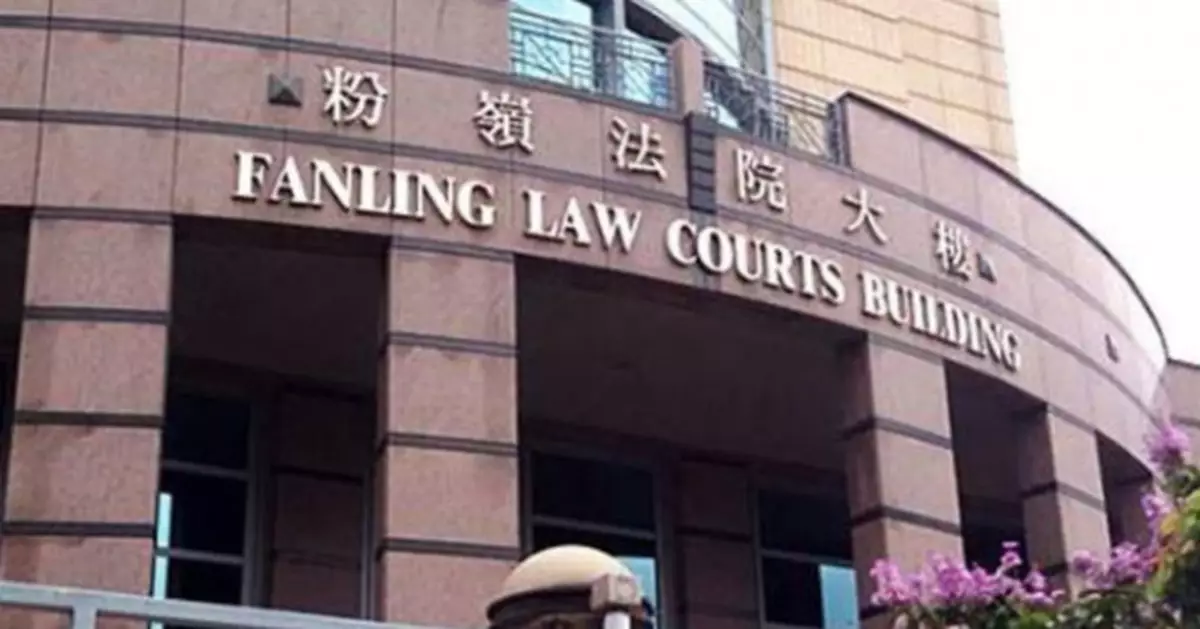Property owner slapped with hefty $15,000 fine for neglecting fire safety regulations
An owner was convicted and fined $15,825 at the Fanling Magistrates' Courts on April 16 for failing to comply with a fire safety direction issued under the Fire Safety (Buildings) Ordinance (FS(B)O) (Cap. 572).
The Buildings Department (BD) issued a fire safety direction under section 5(2)(a)(ii) of the FS(B)O to the owner of a domestic flat in a 58-year-old composite building at San Cheung Street, Sheung Shui, requiring the owner to comply with the fire safety construction requirement by providing a fire-rated door at the unit entrance which opens directly to a staircase.
Failing to comply with the statutory direction, the owner was prosecuted by the BD and was convicted and fined by the court.
"According to the FS(B)O, failing to comply with a statutory direction issued under the ordinance without reasonable excuse is a serious offence. The BD may instigate prosecution proceedings against the owner", a spokesman for the BD said today (April 30).
Pursuant to section 5(8) of the FS(B)O, any person who, without reasonable excuse, fails to comply with a statutory direction, commits an offence and is liable on conviction to a fine at level 4 ($25,000 at present) and to a further fine of $2,500 for each day of non-compliance. Upon conviction, an application may also be made to the court for a fire safety compliance order against the owner under section 6(1) of the FS(B)O directing the owner to comply with the requirements of the direction.

Source: AI-generated images
Epd's innovative pilot project utilizing black soldier flies to transform chicken waste: what you need to know
In response to media enquiries on the pilot project of using black soldier flies (BSF) bioconversion technology for treating chicken waste in the EcoPark, the Environmental Protection Department (EPD) today (May 17) gave the following response:
The Government has been planning to explore different technologies, including bioconversion technology, through pilot projects to treat livestock waste. The purpose is to gain experience, collect data, and compare the advantages and disadvantages of various technologies and their cost-effectiveness, with a view to formulating the long-term waste treatment arrangements.
Regarding chicken waste, the EPD engaged a contractor in 2021 through an open tender process to provide services for carrying out a trial in the EcoPark using BSF bioconversion technology in treating chicken waste and converting it into fish feed and fertiliser. The contract operation period is one year. The contractor will decommission the plant and return the site after the expiry of the operation period. The plant was installed and started operating in February 2023, processing about 10 tonnes of chicken waste per day, which accounts for one-fourth of the chicken waste generated in Hong Kong. The contract was originally scheduled to end in February 2024. In order to collect more data, the EPD and the contractor mutually agreed to extend the operation period by six months until August 2024.
In the meantime, the EPD has successfully tested the "anaerobic co-digestion" technology in treating pig waste and food waste at Oï¼PARK2. Currently, Oï¼PARK2 processes an average of 20 tonnes of pig waste per day, accounting for half of the pig waste generated in Hong Kong.
Following the BSF pilot project and building upon the successful experience of using the "anaerobic co-digestion" technology for treating pig waste, the EPD will commence a trial using the "anaerobic co-digestion" technology to treat chicken waste in August. In the initial phase, 10 tonnes of chicken waste per day will be converted into energy. Depending on the effectiveness, the EPD may further increase the capacity for chicken waste treatment. The EPD will utilise the data, operational experience, cost-effectiveness, and other information collected from both the BSF and the "anaerobic co-digestion" pilot projects to formulate long-term waste treatment arrangements for chicken waste.
Regarding the use of BSF bioconversion technology for food waste treatment, the EPD is currently using anaerobic digestion to convert food waste into energy. The "Food Waste/Sewage Sludge Anaerobic Co-digestion" trial projects at Tai Po and Shatin Sewage Treatment Works currently in operation are very successful. Due to the scarcity of land resources in Hong Kong, using BSF bioconversion technology or other technologies to treat large amount of food waste would require significant additional land. In the future, the EPD will focus on developing the use of Sewage Treatment Works for "Food Waste/Sewage Sludge Anaerobic Co-digestion" to enhance the overall capacity for food waste treatment.

Source: AI-generated images










